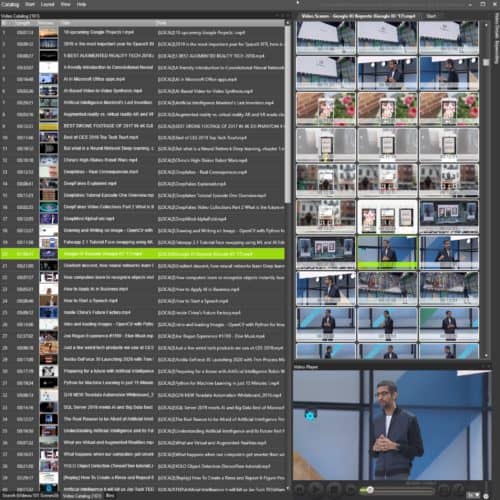Video Indexing with thumbnails
Adding new files and indexing scenes with video thumbnails is quickly done in the background while you browse your clips. You point to the clips, and the program will do the heavy work. When videos are ready, you see them pop up in your catalog window.
Add extra video frames
When a video is indexed and in your video catalog, you can add more frames at any time from any point in the video. just click the camera icon in the video player, and the current frame playing will be added to the thumbnails for that video.
Burst frame capture
Some points in videos are more interesting than others. Fast video cataloger supports burst capture, which lets you capture many thumbnails from a short time period. Simply right-click a thumbnail and select burst capture from that frame.
Supports almost all video file formats
The thumbnail engine is based on DirectShow, allowing it to support all major video formats. This includes much more than mpg, mpeg2, mpeg4, avi, qt, rt, wmv and flv. Fast video cataloger automatically extracts thumbnails from videos to give you an excellent overview. When adding video clips to your catalog, you can keyword them all at once. This is great if you add many related videos in batches of clips. You can always add more specific keywords later, even on every scene, if you wish
Proven video thumbnail extraction code
Fast video cataloger uses the improved C/C++ code to extract thumbnails based on Fast video indexer. This code has been refined over more than twelve years to be fast, accurate, and as fault-tolerant as possible (We can handle many different types of bad codecs and broken video files, not all, but likely more than other similar programs).
Stable
Indexing is run in a separate isolated process, so even if there are codec issues with a video the indexing will continue to the next file automatically. Progress of the indexing queue is saved after each indexed video, so if your computer reboots, the program knows where to continue.
XMP and other metadata
As part of the indexing process FVC can extract metadata from the file including XMP data and Windows file properties. Control what type of metadata to extract from the programs preferences.

